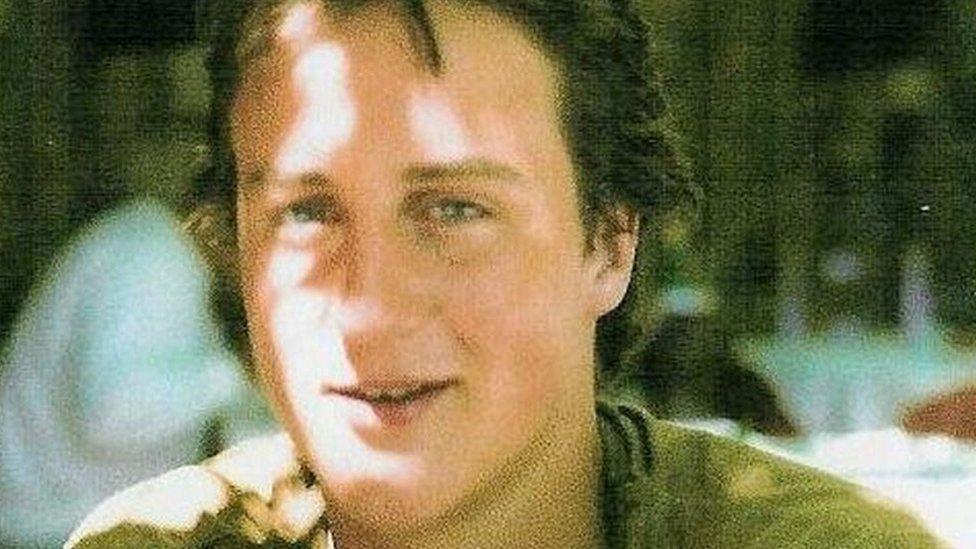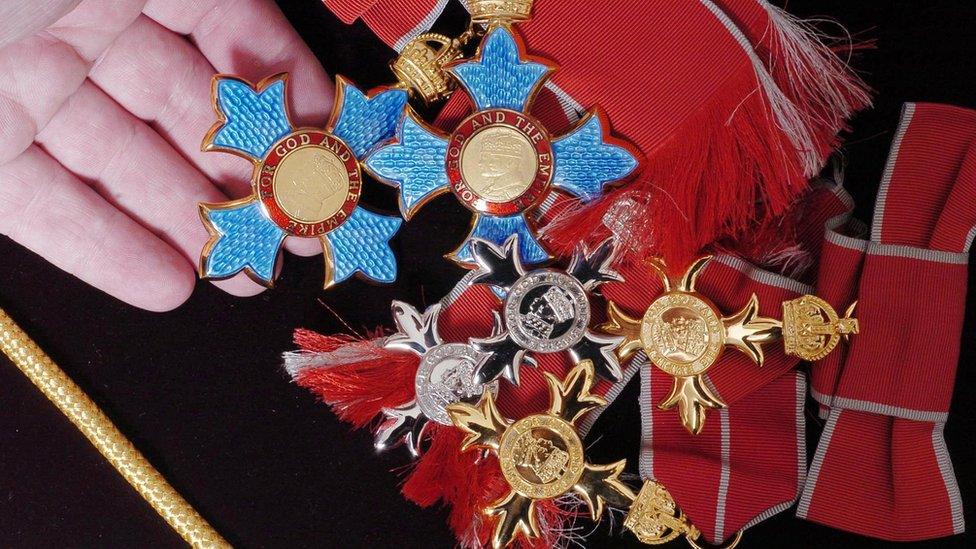Theresa May 'won't intervene' in David Cameron's honours list
- Published
- comments
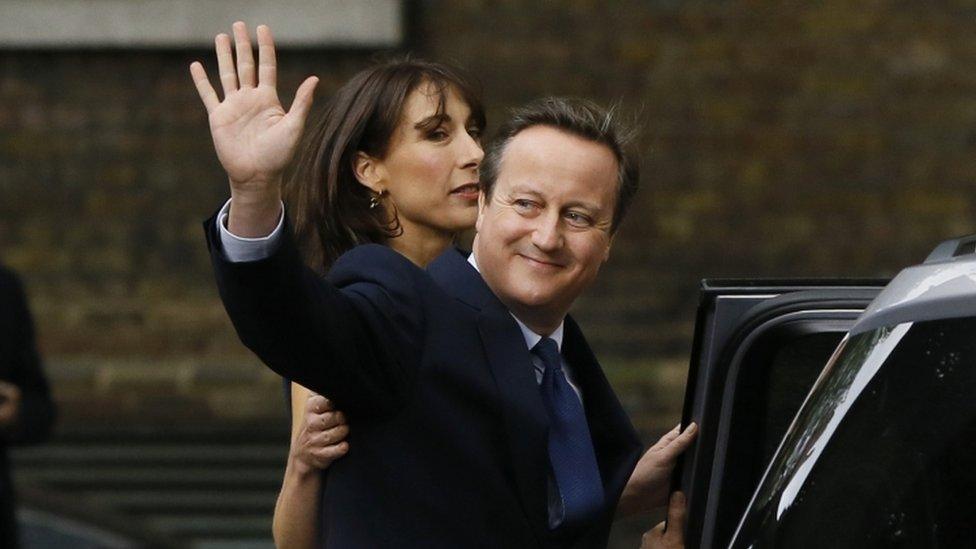
Mr Cameron spent just over six years in Downing Street
Theresa May will not intervene over her predecessor David Cameron's resignation honours list because it would "set a very bad precedent", No 10 has said.
It comes amid opposition MPs' calls for reform of the system after the ex-PM's alleged list was leaked by a newspaper.
The Sunday Times said Mr Cameron had chosen to reward Remain campaigners and No 10 staff and donors, including his wife Samantha's special adviser.
Downing Street said all the "proper processes" would be followed.
Requests for political honours are considered by special honours committees, which are independent of Downing Street.
Sources have told the BBC that while much of the leaked list is correct, reports that a quartet of pro-EU Cabinet ministers - including Chancellor Philip Hammond and Defence Secretary Michael Fallon - are to be recommended for knighthoods is wrong.
Meanwhile, a former aide to Mr Cameron has dismissed "cronyism" claims and suggested much of the criticism of the list was motivated by envy.
According to the Sunday Times,, external Will Straw, head of the official pro-Remain campaign, has been proposed for a CBE, and Tory and Remain campaign donors, Ian Taylor and Andrew Cook, are in line for knighthoods.
Mr Cameron's list is also said to have:
Recommended a damehood for Arabella Warburton, chief of staff to former Prime Minister Sir John Major, who campaigned for Remain
Made 24 recommendations for Downing Street staff, including a knighthood for former director of communications Craig Oliver, an OBE for Isabel Spearman, who was employed as a special adviser to Mr Cameron's wife, Samantha, but is widely described in newspaper reports as her stylist
Requested that former Chancellor George Osborne, who was dismissed by Theresa May when she became prime minister, be made a Companion of Honour
Proposed an OBE for Mr Osborne's special adviser, Thea Rogers, a former BBC producer.
Amid growing calls for it to step in, Downing Street issued a statement saying it was "standard for an outgoing prime minister to submit a resignation list".
"The names on the list were at the formerly prime minister's discretion, and they will now go through all the proper processes and committees," a spokesperson said.
"It would set a very bad precedent for a new prime minister to interfere in the official processes."
'Slap on the back'
An outgoing prime minister has the right to draw up a resignation honours list on leaving office although Sir John Major was the last to formally do so in 1997.
Tom Watson says he would "abolish resignation honours"
Conservative MP Chris Philp says only a "very small number" on PM resignation honours list
Requests for political honours are considered by a committee , externalchaired by the Conservative peer and former MP Lord Spicer.
The majority of the committee's members - which currently include former head of the civil service Lord Butler and ex-Speaker of the House of Lords Baroness Hayman - are deemed to be independent of government.
The names then get sent back to the prime minister who is entitled to make any recommendations she sees fit before the Queen formally approves them.
'Cronyism'
Labour leader Jeremy Corbyn - speaking at a Communications Workers Union press conference - said he wanted to see an honours system that was "fair", "open" and "more democratic".
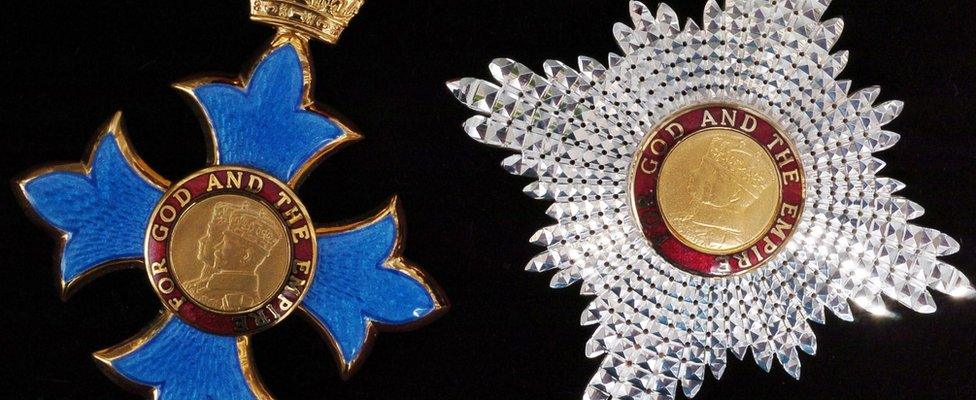
Honours requests are vetted by a series of committees
"I do not believe in honours for politicians who are in office because I believe to be in office, to be elected, to be in Parliament, to account to everyone else, is honour itself," he added.
And Labour deputy leader Tom Watson said that if the list was accurate, it showed that "cronyism runs rife" in Mr Cameron's former administration, with .
"Theresa May has the ability to stop it, and she should do so," he said.
A senior Westminster figure who has been closely involved with the honours list in the past, said it looked to be "an extraordinarily expansive list".
"As such it risks undermining confidence in the honours system as a whole, which follows an independent and rigorous process," they told Radio 4's World at One.
"There is still time for the former prime minister to surprise us with the brevity and good sense of his nominations."
'Debt of honour'
However, Sir Desmond Swayne, who was knighted for political service in this year's New Year Honours list, said it was representative of Mr Cameron's six years as prime minister and all the names would be "robustly scrutinised".
The New Forest West MP and former minister said: "The reason we have a resignation honours list is because over a period of government, particularly difficult government in a coalition, a prime minister has to cajole and get the support of a number people and he builds up a debt of honour.
"I think that frankly an honours list is a relatively light way of paying it off. I think we get far too excited about these things.
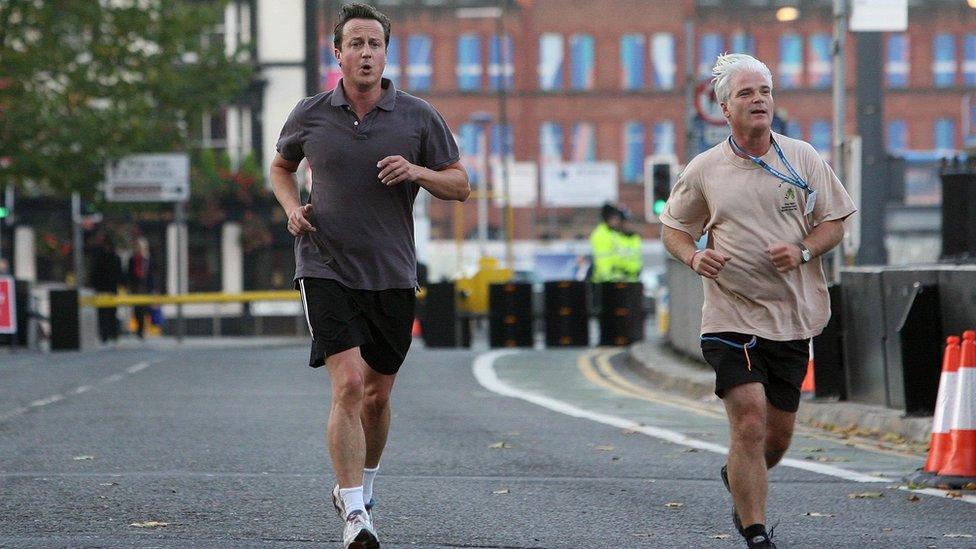
Sir Desmond - seen here running with Mr Cameron - said concerns over the list were misplaced
"The reality is with any honours list there are names that will warm our hearts and names that will send us into an apoplectic rage."
Controversy has surrounded the honours system since its infancy, with David Lloyd George and Harold Wilson among leaders accused of using it to reward friends for political and financial favours.
In 1997, Sir John Major rewarded a number of former Downing Street staff and long-serving Conservative MPs who lost their seats at that year's general election while in 1990 Margaret Thatcher recognised her personal physician and detective among others.
Although neither Tony Blair nor Gordon Brown issued a resignation honours list when they left Downing Street, Mr Blair became embroiled in a "cash for honours" row during his premiership while his successor used a dissolution honours list in 2010 to ennoble a host of former ministers and aides.
- Published13 July 2016
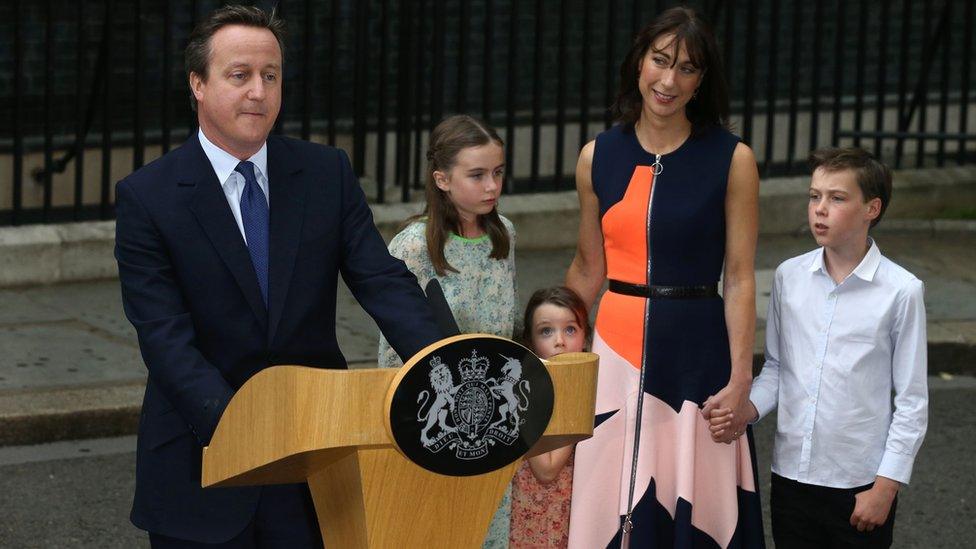
- Published12 September 2016
